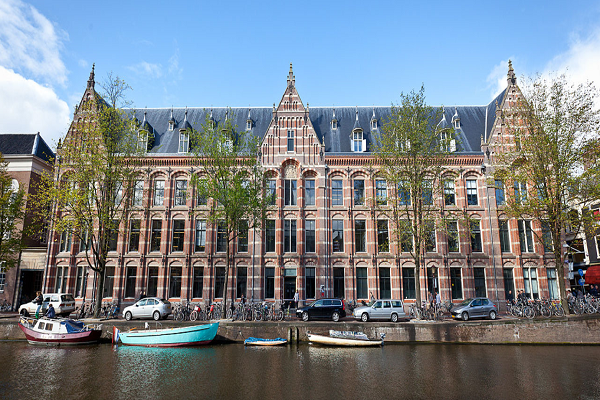University of Amsterdam: Karen Maex to step down as UvA Rector Magnificus in the summer
Maex moved from Leuven to Amsterdam in 2014. ‘It’s time for me to go home. Over the past nine years, my family have continued to live in Leuven and I have travelled back and forth to Amsterdam regularly. The combination of the rectorate and family at a distance has taken a heavy toll. I think now is a good time to be in Leuven permanently once more and to develop new activities there. Although I don’t know yet what those will be,’ says Maex.
‘I had great pleasure in holding both the deanship of the Faculty of Science and the position of Rector. The breadth of the UvA is fantastic. So much is happening, in so many areas; that inspires me every day. It has been an honour to have been able to contribute to this and to collaborate with so many special colleagues.’
The Supervisory Board expressed its great appreciation for Maex’s efforts and achievements on behalf of the UvA. ‘Karen has committed herself with fervour and pride to our university over the years. She has been fully committed to overseeing teaching and research within the UvA and has also put important topics on the national and international agendas,’ says Marise Voskens, chair of the Supervisory Board. ‘We also got to know her as a special person and someone who brings people together. Karen has an eye for all the angles and always tries to take all aspects of a situation into account. After this summer, the UvA will miss her not only in terms of what she brought to the job, but also as a person.’
The Supervisory Board, in consultation with all relevant sections of the UvA, including the representative advisory bodies, will shortly begin the recruitment and selection process for Maex’s successor.
Digitalisation and independent science
During her rectorship, Maex often spoke up about the position and role of the university in society, as well as focussing on themes such as internationalisation, digitalisation and the autonomy of science. In 2018, for example, with regard to the significance of the university in a globalising society, she stated that we must recognise and set limits to the growth in internationalisation. She also frequently advocated for cooperation between European universities, especially within the League of European Research Universities (LERU), in order to contribute to the tackling of ‘wicked problems’ such as climate change, sustainability and poverty. Maex also drew attention to scientific independence in the current era of digitalisation, advocating for a European ‘Digital University Act’. She has also spoken about the importance of a careful and thoughtful transition to ‘Open Access’ and ‘Open Science’. She recently discussed the disruptive effects of digitalisation and conspiracy theories, and outlined the ways in which universities could and should respond to them.

